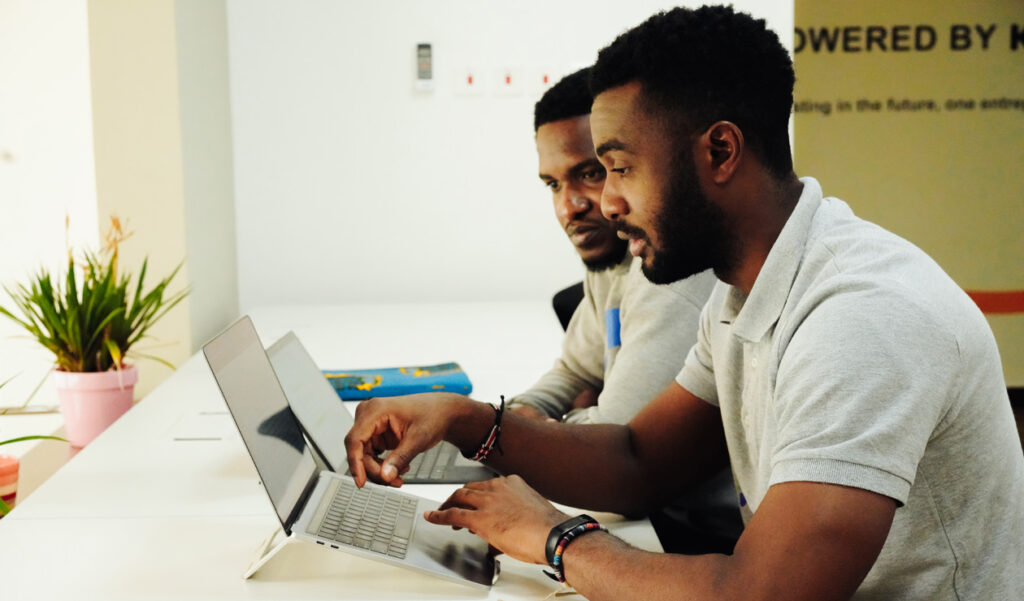Overview
The African American HIV University (AAHU) is the Black AIDS Institute’s comprehensive training and leadership development initiative, designed to increase knowledge, decrease stigma and strengthen workforce capacity and engagement, ultimately to address and end the HIV/AIDS epidemic in Black American communities.
The AAHU model comprises 7 interconnected components, all designed to strengthen the HIV workforce. This model reaches approximately 3,000 people annually across the program cohorts, trainings, & webinars. This number does not include the reach (nearly 200,000 annually) from AAHU’s online informational materials across the BAI website & social media.
7 AAHU Initiatives
AAHU’s flagship training and leadership development programs are the Science and Treatment College and the Community Mobilization College. These programs are open to anyone currently in the field of HIV or with a desire to enter the field.

1. Science and Treatment College
This initiative focuses on HIV and its relationship to human biology, virology, and epidemiology.
Thus, the Science and Treatment College is science-focused, with scholars ultimately creating a program plan for a specific community HIV prevention initiative.

2. Community Mobilization College
This initiative focuses on building grassroots skills to engage key stakeholders and communities in initiatives to combat HIV. Accordingly, the Community Mobilization College is geared toward grassroots organizing, with scholars creating a needs assessment and detailed logic model for establishing an effective, sustainable coalition in their locality.

3. HIV Workforce Certificate Program
This initiative is an accelerated (20-hour) version of the Science and Treatment and Community Mobilization College. (see above)
This program is currently in a pilot phase.

4. Training and Capacity Building
This initiative works on training and capacity building (TCB) efforts with the federal government’s Ending The HIV Epidemic (EHE)-funded jurisdictions, health departments, universities, other institutions (e.g. churches), and community organizations.
Under this initiative, AAHU also hosts monthly Brown Bag Lunches and offers 3 categories of training and capacity-building services.

5. Biomedical Research Education
This initiative serves as a bridge between the latest HIV research and the HIV workforce and the Black community. The team sits on national research consortia (HVTN, HPTN, CoVPN), partners with leading research institutions, and delivers findings and knowledge to the workforce and community with weekly online correspondence and quarterly town halls.

6. Black Leadership Network
The Black Executive Director and CEO Network is a coalition of approximately 30 Black-led HIV organizations in the United States. The Network strives to increase the visibility and pipeline of Black HIV leaders and leverages its efforts to build a stronger Black influence in the country’s HIV response. Accordingly, it leads the advocacy behind pressing policy issues impacting Black Americans living with, or at risk for, HIV acquisition.
More details coming soon.

7. AAHU Alumni Network
This initiative connects graduates of AAHU’s training programs with consistent (i.e., monthly) engagement and professional development opportunities among themselves, as well as with BAI. These interactions culminate in a reunion celebration during the summer.
More details coming soon.
Recruitment
The Science & Treatment College, Community Mobilization College, and HIV Workforce Certificate Program recruit cohort participants via BAI emails/listserv, presentations, conferences, and social media.
The Science & Treatment College (STC) and Community Mobilization College (CMC) seek 30 participants each who are either already in the HIV workforce or who desire to enter the workforce. The ideal STC candidate would have an interest in the science and epidemiology of HIV, and the ideal CMC candidate would have an interest in grassroots organization. Lengthy professional/academic training is not a requirement, and lived experience with HIV (and within the Black community) is a plus. The application processes for the STC & CMC open in June, with an approximate closing during the second week of August.
The HIV Workforce Certificate Program seeks up to 50 participants who have HIV workforce experience. Lived experience with HIV and within the Black community is a plus. The pilot is currently open for applicants, and the full-scale program’s application cycle is to be determined following the completion of the pilot.
For more information, please contact Darrin Johnson, Deputy CEO. Register here for the Black Gay Men’s and Frontline Worker’s Cohort.
